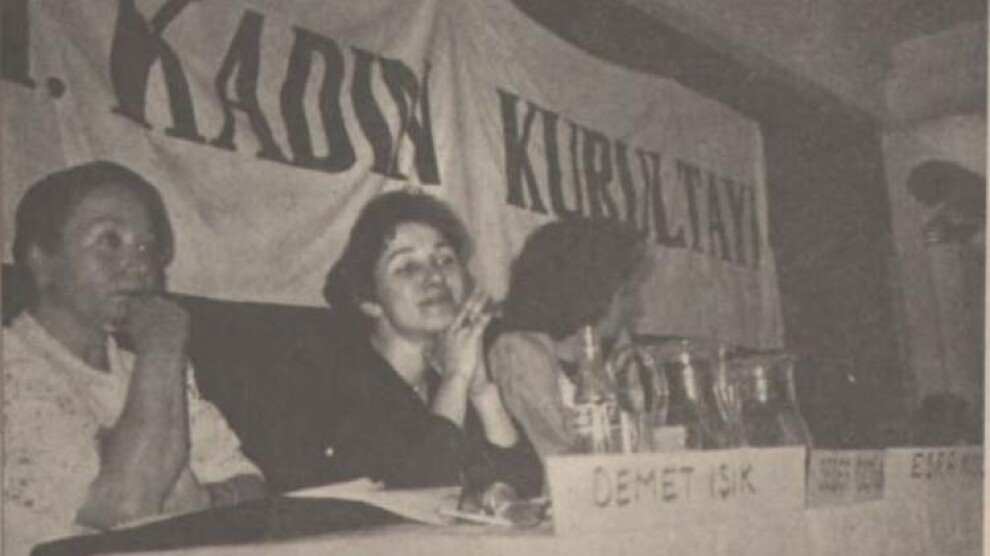Today in history: First Women’s Congress in Turkey
Women’s organizations from different cities of Turkey, feminist groups, socialist women, independent women, Human Rights Association (IHD) Women’s Commission, and about 2500 women from other countries participated in the First Women’s Congress held in Turkey on May 19, 1989 “to discuss the problem faced by women for being a woman, to meet each other and to raise their voices.”

The congress lasted three days. In the first two days, 70 reports were submitted on discrimination against women in education, political and economic life, laws, religion, science, and culture, on family structure, violence against women, women's sexuality, liberation, their liberation, and organization perspectives and the problems faced by Kurdish women. 150 women made speeches during the congress about the reports. The congress was held with the suggestion of the Istanbul IHD Women's Commission, led by women’s groups and a women’s platform.
Social Feminist Cactus (Sosyal Feminist Kaktüs) also joined the preparation for the congress that lasted six months. Feminists and a women group left the congress due to the opening speech including nothing about women’s issues, the intolerance against feminists, police attack on a transwoman, the anti-democratic attitudes.
On the third, last day of the congress, a picnic was organized at Yıldız Park and the final declaration (Final Declaration of Women’s Congress) was announced. There were two different opinions in the declaration. The first opinion emphasized the necessity of a specific and independent women's struggle within the framework of women's demands, without ignoring historical, social, class, and national differences in the Women's Struggle for Freedom. Feminists, socialist feminists and some socialist women left the congress stating that the discussions at the congress couldn’t sufficiently express women’s issues, focused on other issues.
The second opinion was successful congress for bringing many women’s groups from different views on women’s movement and women’s freedom. After the congress, women in the second group described the feminists as bourgeois, and the socialist women supporting feminists as reformists and opportunists. And those attitudes prevented the publication of a book for the congress.
